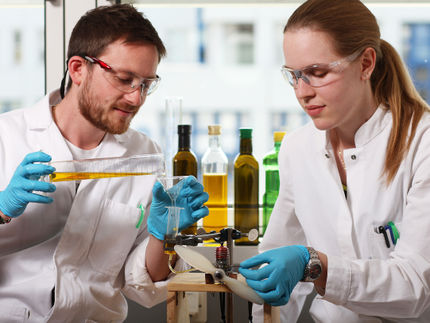A 'shrimp cocktail' to fuel cars and trucks
Advertisement
Call it a "shrimp cocktail" for your fuel tank. Scientists in China are reporting development of a catalyst made from shrimp shells that could transform production of biodiesel fuel into a faster, less expensive, and more environmentally friendly process. Their study is scheduled for the Aug. 20 issue of ACS' Energy & fuels.
Xinsheng Zheng and colleagues note that an energy-hungry world, concerned about global warming, increasingly puts its future fuel hopes on renewable fuels like biodiesel. Today's biodiesel production processes, however, require catalysts to speed up the chemical reactions that transform soybean, canola, and other plant oils into diesel fuel. Traditional catalysts cannot be reused and must be neutralized with large amounts of water - another increasingly scarce resource - leaving behind large amounts of polluted wastewater.
The researchers describe development of a new catalyst produced from shrimp shells. In laboratory tests, the shrimp shell catalysts converted canola oil to biodiesel (89 percent conversion in three hours) faster and more efficiently than some conventional catalysts. The new catalysts also can be reused and the process minimizes waste production and pollution, the scientists note.
Most read news
Organizations
Other news from the department science

Get the chemical industry in your inbox
By submitting this form you agree that LUMITOS AG will send you the newsletter(s) selected above by email. Your data will not be passed on to third parties. Your data will be stored and processed in accordance with our data protection regulations. LUMITOS may contact you by email for the purpose of advertising or market and opinion surveys. You can revoke your consent at any time without giving reasons to LUMITOS AG, Ernst-Augustin-Str. 2, 12489 Berlin, Germany or by e-mail at revoke@lumitos.com with effect for the future. In addition, each email contains a link to unsubscribe from the corresponding newsletter.






























































